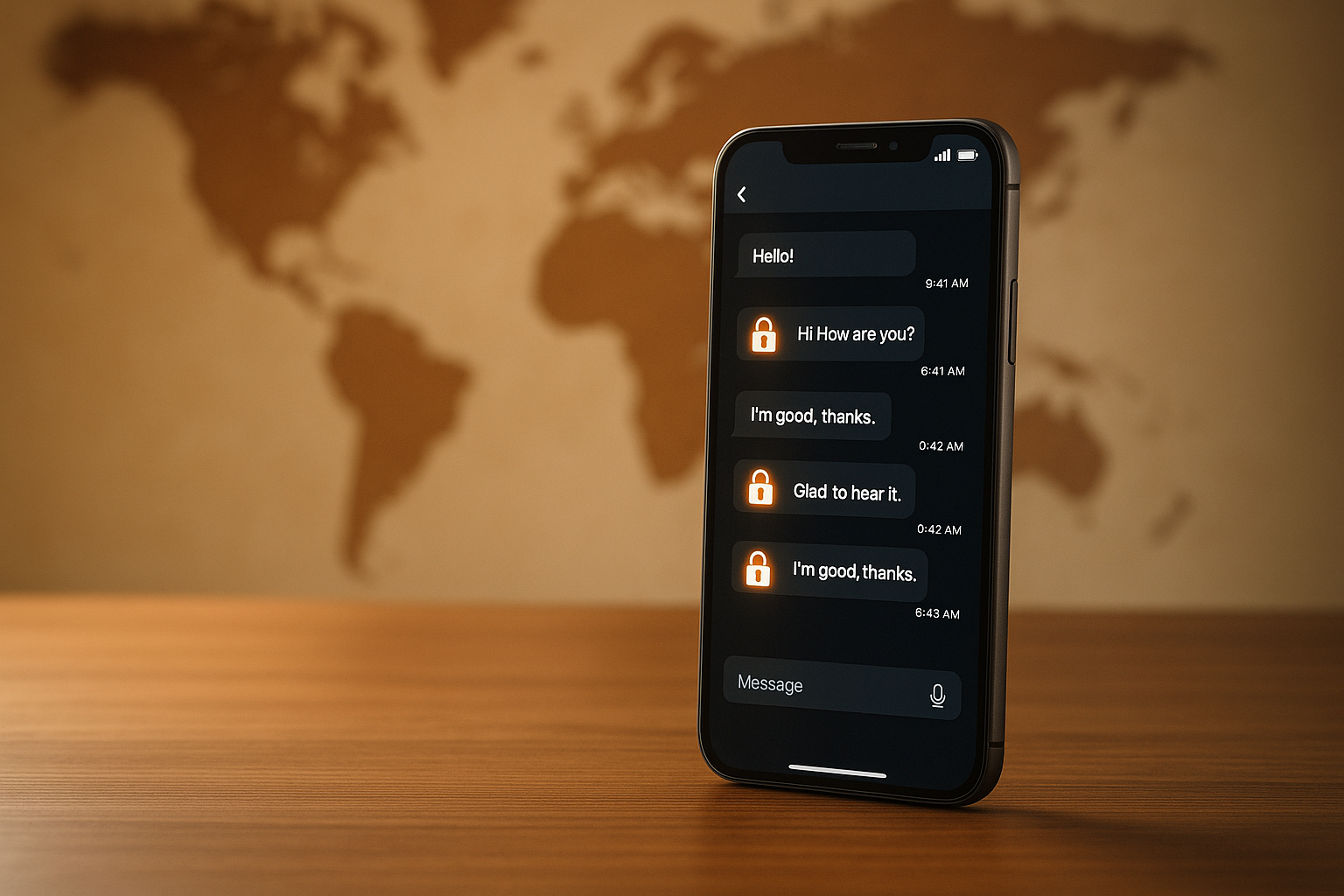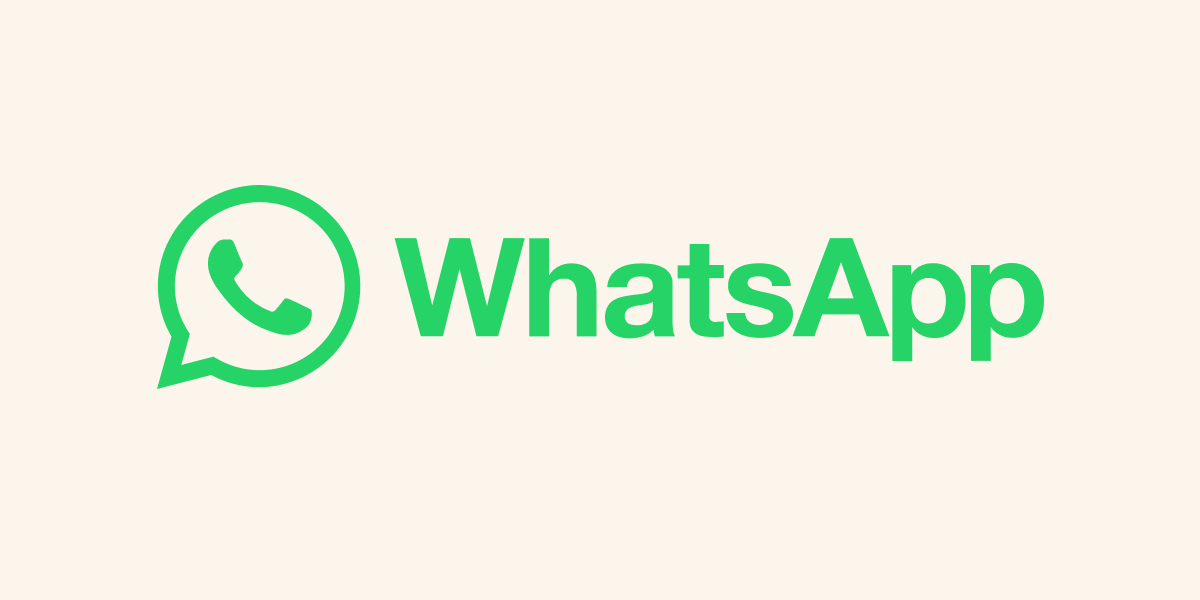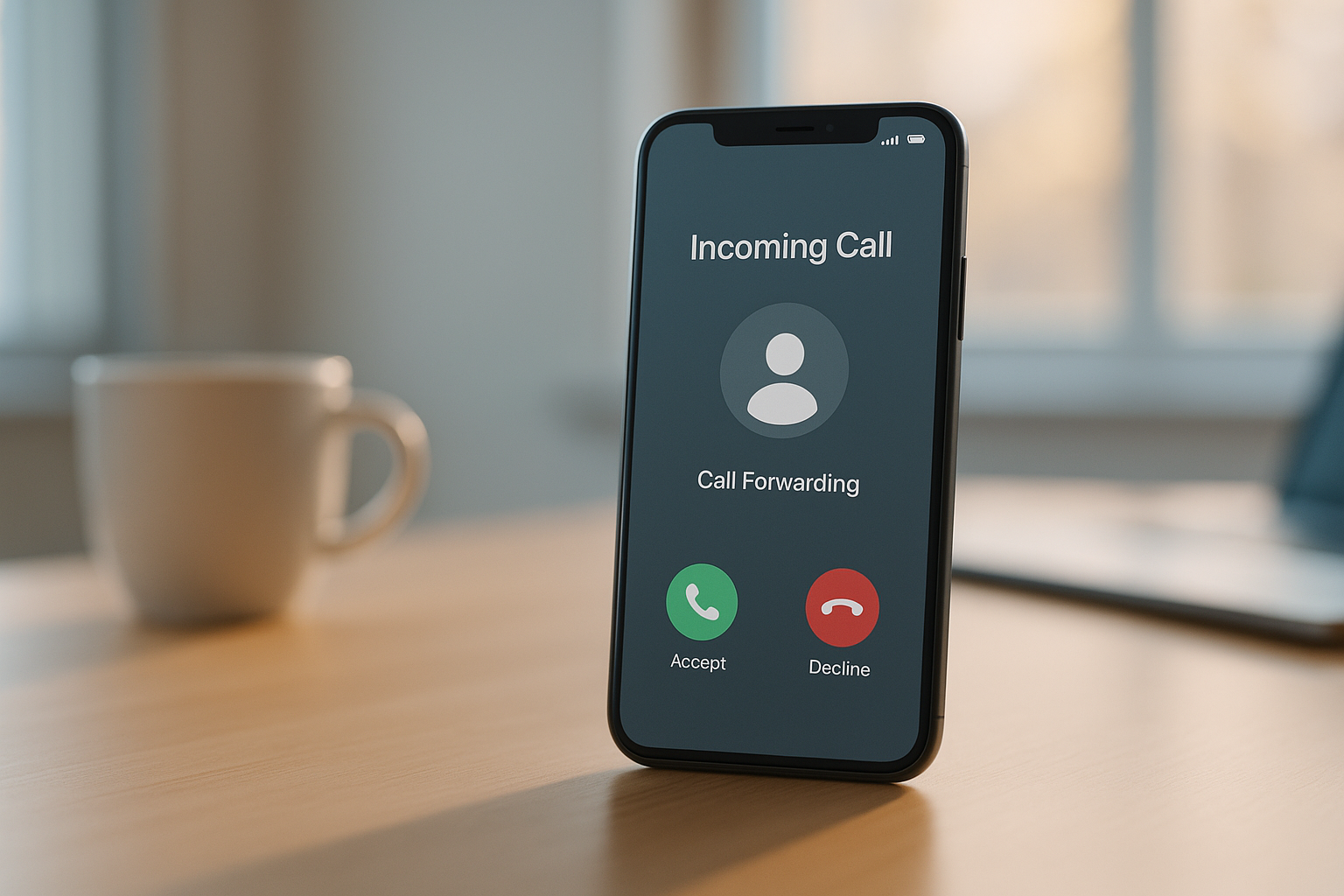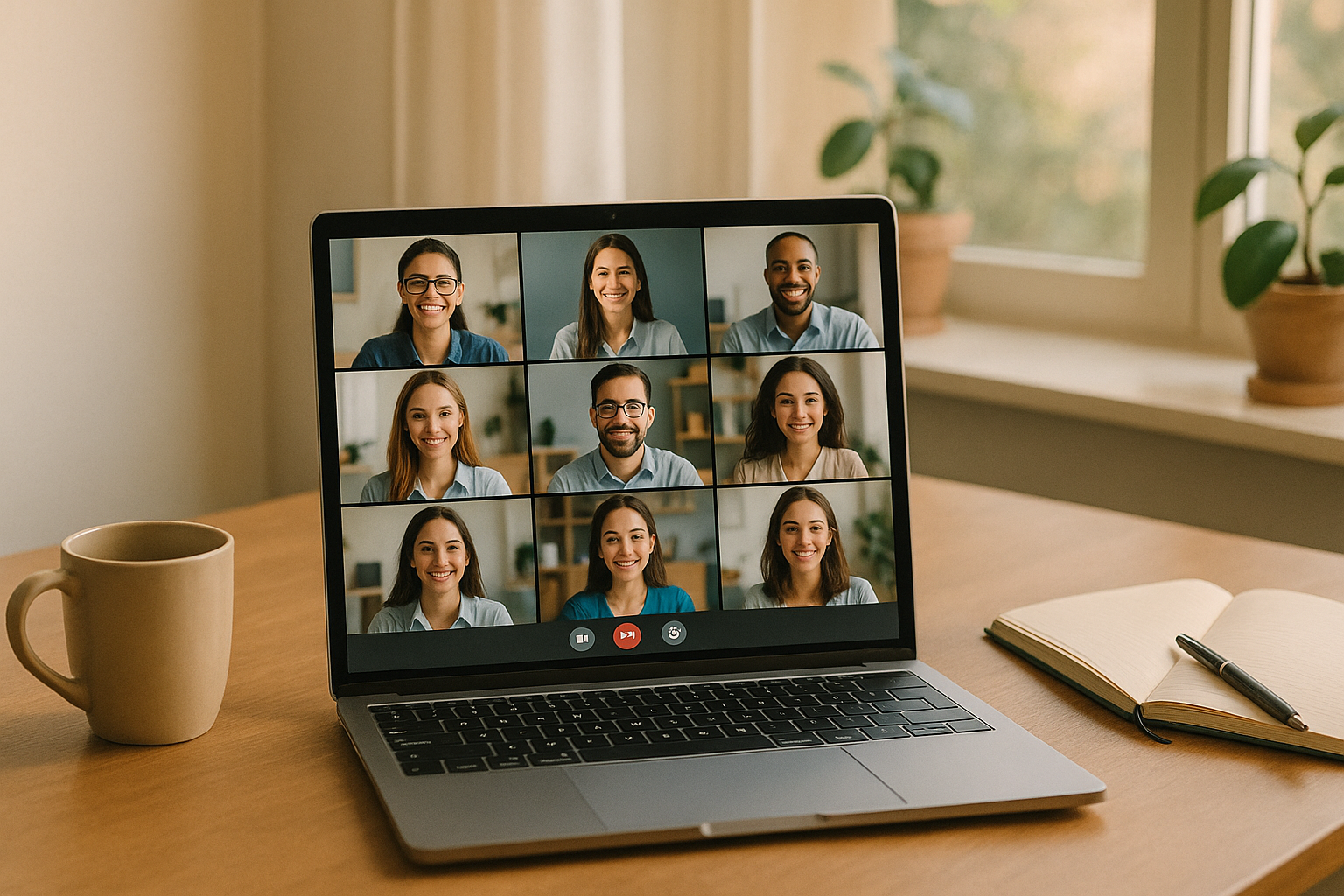Best Privacy Apps for International Communication: Signal vs Telegram vs WhatsApp 2025
- Signal: Free, full end-to-end encryption (E2EE) for all chats and calls, minimal data collection, and open-source transparency. Ideal for privacy-first users.
- Telegram: Combines usability and privacy with E2EE only for "Secret Chats." Free with a $5/month premium option for advanced features. Not as secure by default.
- WhatsApp: Massive global user base, E2EE for all personal messages, but collects more metadata. Free to use, but data charges may apply for international use.
Quick Comparison
| Feature | Signal | Telegram | |
|---|---|---|---|
| Encryption | Full E2EE (default) | E2EE only for Secret Chats | Full E2EE (default) |
| Data Collection | Minimal | Limited metadata | More comprehensive |
| Cost | Free | Free ($5/month premium) | Free |
| Open Source | Yes | Yes (client only) | No |
| Global Accessibility | Blocked in some regions | Blocked in some regions | Blocked in some regions |
| Disappearing Messages | Highly customizable | Limited options | Basic options |
Key Takeaway:
If privacy is your top concern, Signal is the best choice. For broader usability and features, WhatsApp is a strong contender. Telegram offers a balance but lacks default E2EE for regular chats. Choose based on your needs and priorities.
Signal vs. WhatsApp vs. Telegram (Who Wins?)
1. Signal
Signal stands out as a top choice for secure international communication, and the best part? It's completely free. According to Signal.org:
"Privacy isn't an optional mode - it's just the way that Signal works. Every message, every call, every time."
With roughly 70 million monthly users and over 220 million downloads worldwide, Signal has become a trusted platform for privacy-focused communication.
Security Features
At the heart of Signal's design is its end-to-end encryption, powered by the open-source Signal Protocol. This encryption ensures that no one - not even Signal - can access your messages or calls. Additional features like "sealed sender", which hides recipient identities, and "perfect forward secrecy", which secures past conversations even if encryption keys are compromised, further bolster its security.
To add another layer of protection, Signal allows users to verify safety numbers and QR codes, helping to detect potential interception attempts. Its transparency is also a major strength - Signal's open-source code is publicly available and undergoes regular audits by security experts. Plus, the app avoids storing metadata about your conversations and ensures messages are deleted securely, even from online backups.
Cost for International Use
Signal's pricing model couldn't be simpler - it's entirely free. The app uses your phone's data connection or Wi-Fi for all communications. Whether you're chatting with someone across the street or across the globe, there are no subscription fees, per-minute charges, or hidden costs. All you need is an internet connection, and the app functions exactly as it would back home.
Signal also supports group calls with up to 50 participants and group chats that can include as many as 1,000 users, making it versatile for both personal and professional use.
Global Accessibility
While Signal is accessible worldwide, some regions, such as China, Russia, and Venezuela, have blocked the app due to censorship. To counteract this, Signal employs domain fronting technology in restricted areas. As of May 2022, this feature is automatically enabled in countries like Egypt, the UAE, Oman, Qatar, Iran, Cuba, Pakistan, and Uzbekistan.
Call and Messaging Quality
Signal delivers reliable voice and video calls, which depend on the quality of your internet connection. Messages, including multimedia, are sent smoothly and securely. For enhanced privacy, users are encouraged to enable disappearing messages, keep software updated, and disable sender names and message previews on lock screens. Adding password protection to the app is another smart way to safeguard your data.
With its strong focus on privacy, zero-cost model, and dependable performance, Signal remains a top choice for secure international communication. While it does face some geographic restrictions, its commitment to user privacy makes it a standout option. Up next, we'll take a look at another leading app to see how it compares in terms of security and features.
2. Telegram
As of July 2024, Telegram has amassed a staggering 950 million users, offering a blend of powerful features and customizable privacy settings. Unlike Signal, which prioritizes privacy above all else, Telegram strikes a balance between usability and security.
Security Features
Telegram employs a mix of security protocols tailored to meet varying user needs. For Secret Chats, it uses end-to-end encryption, while regular chats rely on server-client encryption. Additional features include self-destructing messages, two-step verification, and detailed privacy controls, allowing users to manage who can see their phone number, last seen status, and profile picture. However, end-to-end encryption is not enabled by default for regular chats, which means Telegram technically has access to these messages. Despite this, the company asserts it has never shared private messages with third parties:
"All Telegram servers belong to Telegram and are maintained by Telegram employees. Unauthorized access is impossible. Throughout its entire history, Telegram never disclosed any private messages to a third party - and its encryption has never been breached." – Remi Vaughn, Telegram's head of Press and Media Relations
Telegram also stands out for its open API and protocol, allowing independent security audits. Data is encrypted both in transit and at rest, further bolstering its security framework.
Cost for International Use
Telegram operates on a freemium model, making it especially attractive for global communication. Core messaging and calling features are free, with no ads or subscription fees. Voice and video calls are secured with end-to-end encryption and use optimized codecs to reduce data consumption. For those seeking added perks like unlimited cloud storage and animated emojis, Telegram offers a premium subscription priced at $5 per month or $36 annually.
Global Accessibility
Despite its popularity, Telegram faces restrictions in several countries due to regulatory and security concerns. For instance, Vietnam blocked the app in May 2025, citing that 68% of its 9,600 channels and groups contained problematic content. This was a significant move, considering Vietnam is one of Telegram's largest markets, with over 11.8 million users. Similarly, China has banned Telegram since July 2015, primarily due to its use by human rights lawyers critical of the government. Russia also imposed a temporary ban from April 2018 to June 2020 before eventually lifting restrictions.
Call and Messaging Quality
Telegram ensures smooth international communication with a peer-to-peer connection system. When direct connections aren't possible, the platform automatically switches to the nearest server. Advanced audio codecs and AI-powered neural networks help fine-tune call quality based on user feedback. Additionally, users can control who can call them, with the option to disable voice calls entirely if preferred. Its cloud-based design allows seamless syncing across devices, enabling users to effortlessly switch between phones, tablets, and computers during conversations.
With its mix of functionality and privacy, Telegram sets the stage for a closer look at WhatsApp's approach to user security next.
3. WhatsApp
With an impressive 2.9 billion unique users, WhatsApp stands as a global leader in messaging, especially in regions where SMS costs are steep.
Security Features
WhatsApp prioritizes privacy with end-to-end encryption enabled by default for personal messages, calls, photos, and videos. This encryption relies on the same Signal protocol that powers Signal's robust security framework. As the platform emphasizes:
"Privacy and security is in our DNA, which is why we built end-to-end encryption into our app."
To bolster privacy further, WhatsApp offers features like disappearing messages, chat locks, and end-to-end encrypted backups. Users can control who sees their online status, profile photo, and even who can add them to groups. Additional safeguards include proactive security alerts, automatic spam detection, and two-step verification.
WhatsApp is also exploring "Private Processing" for AI tools. As Head Will Cathcart explains:
"Many people want to use AI tools to help them when they are messaging. We think building a private way to do that is important, because people shouldn't have to switch to a less-private platform to have the functionality they need."
However, WhatsApp does collect metadata, such as details about who you communicate with and when.
Cost for International Use
WhatsApp is free for messaging and calls, with costs limited to mobile data usage, especially when roaming. While calls and messages are free over Wi-Fi, using mobile data abroad can result in charges of up to $10–15 per MB. Voice calls typically consume 300–500 KB per minute, while video calls use about 3–5 MB per minute. As one source notes:
"Calling internationally using WhatsApp itself costs nothing. But the calls are only genuinely 'free' when you're connected to Wi‑Fi that you're already paying for or can use freely."
Global Accessibility
Despite its massive reach, WhatsApp faces restrictions in several countries due to government censorship and policies targeting its encryption. For instance, China has blocked WhatsApp since 2017, while countries like North Korea, Syria, and Iran have imposed full bans. Additionally, nations such as Qatar, the UAE, Saudi Arabia, and Egypt restrict WhatsApp's voice and video calling features. In a notable move, Chinese authorities required Apple to block WhatsApp downloads on Chinese iPhones in April 2024.
Yet, millions of users in restricted regions continue to access WhatsApp through workarounds. As Will Cathcart shared:
"We have a lot of anecdotal reports of people using WhatsApp and what we can do is look at some of the countries where we're seeing blocking and still see tens of millions of people connecting to WhatsApp."
To address such challenges, WhatsApp introduced a proxy service in June 2023, enabling users to bypass censorship and internet shutdowns. The company explains:
"Choosing a proxy enables you to connect to WhatsApp through servers set up by volunteers and organizations around the world dedicated to helping people communicate freely."
Call and Messaging Quality
The quality of WhatsApp's calls and messages largely depends on the user's internet connection. With a massive user base - including over 480 million users in India alone - WhatsApp continues to set the standard for international messaging platforms.
Next, we'll evaluate these platforms based on key privacy and functionality metrics.
Comparison of Features and Drawbacks
Choosing the right privacy app means balancing security, cost, and usability. Each platform prioritizes these aspects differently, which can significantly shape your communication experience.
Signal takes the lead in privacy by default, offering end-to-end encryption (E2EE) for all chats and calls while collecting only your phone number and minimal metadata. According to CNET, Signal provides stronger privacy protections compared to Telegram and WhatsApp. These distinctions set the stage for a deeper comparison.
WhatsApp also employs the Signal Protocol for encryption, ensuring E2EE for non-business messages. However, it collects more data and shares some information with its parent company, Meta. A WhatsApp spokesperson stated:
"WhatsApp has no backdoors and we have no evidence of vulnerabilities in how WhatsApp works... We have a proven track record addressing issues we identify and have worked to hold bad actors accountable."
Telegram, on the other hand, only offers E2EE in its "Secret Chats", while regular chats rely on client-server encryption. Additionally, Telegram collects IP addresses and may share data with law enforcement when required.
Here's a side-by-side comparison of key features:
| Feature | Signal | Telegram | |
|---|---|---|---|
| Encryption | Full E2EE (all chats & calls) | E2EE only for Secret Chats | E2EE for all non-business messages |
| Data Collection | Minimal | Some metadata, username/device info | More comprehensive data collection |
| Open Source | Yes | Yes (client only) | No |
| Metadata Protection | Strong | Limited | Limited |
| Disappearing Messages | Highly customizable | Limited to 1-day minimum | Limited customization |
Cost is another practical consideration. Both Signal and WhatsApp are free to use, while Telegram offers a Premium subscription priced at $4.99/month.
When it comes to user base, WhatsApp dominates with nearly 3 billion users and a 4.0/5 rating, making it a top choice for global connectivity. Signal, though smaller with 40 million users, earns a higher rating of 4.5/5 for its robust privacy focus. Telegram, with 950 million users, scores a 3.5/5, offering a mix of privacy and social features.
All three apps are available on major platforms - Android, iOS, and web. However, their disappearing message features vary. Signal provides the most flexibility, letting users set timers from seconds to weeks. Telegram limits automatic deletion to a minimum of one day, while WhatsApp offers only basic options.
Final Recommendations
After diving into the detailed comparisons, here are some tailored recommendations based on specific user needs. Choosing the right privacy app depends on how you plan to use it and what matters most to you.
For Personal Use
If your top priority is security, Signal stands out as an excellent choice. PCMag highlights, "We consider Signal to be an excellent choice for private messaging, and it's easy to see why. All messages are secured with end-to-end encryption (E2EE) and Signal is a nonprofit, so there's no reason to harvest any user data." On the other hand, if you value convenience and need an app that most of your contacts already use, WhatsApp is a practical option due to its widespread popularity. In short, Signal is ideal for privacy-focused individuals, while WhatsApp caters to those who prioritize ease of connecting with others.
For Business Communication
When it comes to business use, WhatsApp Business leads the pack. With over 200 million active monthly users in 2023, it supports businesses with features like a conversation-based pricing model. For instance, authentication conversations in the UK cost about $0.0358, while many service-related chats remain free. Its seamless integration into workflows and strong encryption for sensitive discussions make it an appealing choice. It's no surprise that WhatsApp Business holds a 4.7/5 rating on G2, reflecting its reliability for customer communication.
For Frequent International Travelers
Travelers often need apps that work smoothly on any network, avoiding traditional roaming charges while maintaining security. Both Signal and WhatsApp perform well on Wi-Fi and mobile data, making them dependable options. However, Telegram lacks default end-to-end encryption, which might not meet the security needs of travelers. For those who need strong protection and a broad user base while abroad, Signal's robust security and WhatsApp's global reach make them the top choices.
Cost Considerations
For personal use, both Signal and WhatsApp are free, which adds to their appeal. For businesses, WhatsApp's conversation-based pricing model provides a clear and predictable way to manage costs, making it a budget-friendly option for professional communication.
For more secure messaging alternatives and detailed comparisons, explore our secure messaging category to find the perfect solution for your communication needs.
FAQs
How do Signal, Telegram, and WhatsApp compare in terms of privacy for international communication?
Signal, Telegram, and WhatsApp each cater to international communication but vary significantly in their approach to privacy. Among them, Signal stands out as the go-to option for those who prioritize security. It offers end-to-end encryption for all conversations, refrains from collecting user metadata, and operates as an open-source platform, allowing anyone to inspect its security measures.
WhatsApp, while also providing end-to-end encryption, has drawn criticism for collecting metadata and sharing certain user information with its parent company, Meta. This practice has raised privacy concerns among users. Meanwhile, Telegram takes a different approach. Not all chats are encrypted by default, and it retains some user metadata, which can be accessed by law enforcement upon request.
If safeguarding your privacy is a top concern, Signal is the clear choice. Its strong encryption and commitment to minimal data collection make it the most secure option for international communication.
What are the costs of using privacy apps for international communication, and are there any hidden fees?
The cost of privacy apps for international communication can vary quite a bit, depending on the app and the features you use. Many popular options, like Signal and WhatsApp, allow you to make free voice and video calls as long as you're connected to Wi-Fi or using mobile data. However, some apps may charge for premium features or specific services, like calling landlines or users who don't have the app.
It's important to watch out for hidden fees. These could include charges for mobile data usage, in-app purchases, or automatic subscription renewals. Carefully reviewing the app's pricing details and terms of service can help you avoid any surprises. Some apps also offer free trials, but if you forget to cancel before the trial ends, you might end up with unexpected charges. To stay on top of things, keep an eye on your mobile data usage and double-check your app settings to prevent any unplanned expenses.
What is the best app for travelers visiting regions where communication tools are often restricted?
For those who travel often to places with tight communication controls, Signal stands out as a reliable option. It provides strong end-to-end encryption and top-tier privacy tools, keeping your messages and calls secure even under strict internet restrictions. Plus, it's built to perform well in low-bandwidth conditions, making it a dependable choice for staying connected while abroad.






